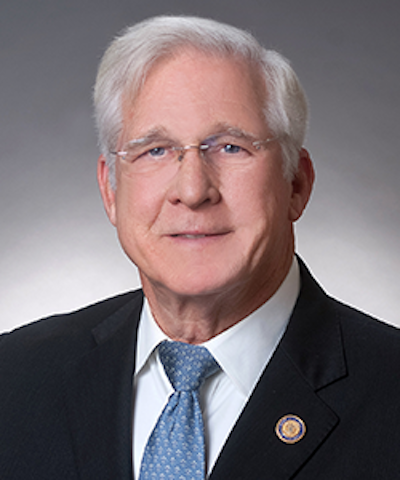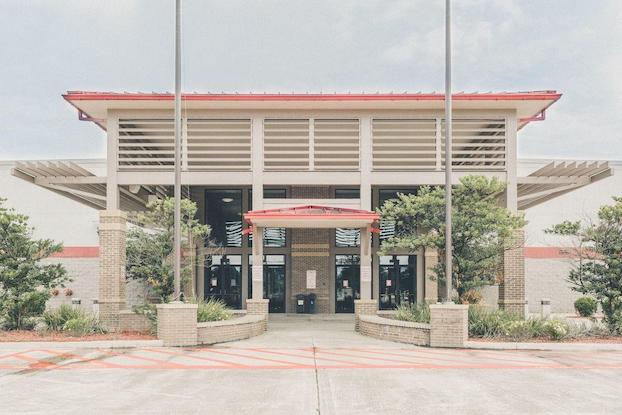Jim Beam column: ‘You’ve got it, so spend it’
Published 6:44 am Saturday, April 29, 2023

- Randy Ewing, a former Louisiana Senate president, was author of the 1990 legislative spending cap who has some advice for current Louisiana legislators.(Photo courtesy of state Board of Regents).
Randy Ewing of Quitman in Jackson Parish, a former president of the Louisiana Senate, had some wise advice for conservatives in the state Legislature who don’t want to spend two years of surpluses on one-time and neglected state projects.
“We never envisioned money like you’ve got today,” Ewing told the Senate Finance Committee Wednesday. “But the basic concept (in 1990) was, ‘If you don’t have the money, don’t spend it.’ Well, you’ve got the money, and you can spend it.”
Ewing was in the Senate from 1988 to 2000 and was president in his last and third term from 1996 to 2000. He was also author of Act 1096 of 1990 that established the legislative spending limit that today’s Republican conservatives don’t want to increase.
The non-profit Public Affairs Research Council in its 1990 “Guide to the Proposed Constitutional Amendments” said a vote for Amendment No. 2 would limit state spending and create a Revenue Stabilization/Mineral Trust Fund. Voters approved it 71% to 29%.
Current Senate President Page Cortez, R-Lafayette, got the Senate committee to move his bill to increase the spending limit to the full Senate without opposition. Cortez said using the money to pay off pension debt misinterprets the original purpose of the expenditure limit.
Ewing explained the motivation behind the expenditure limit. When the late-Gov. Buddy Roemer took office in 1988 following the late-Gov. Edwin W. Edwards, Roemer inherited a $1.2 billion deficit. The current Gov. John Bel Edwards inherited a similar debt after former Republican Gov. Bobby Jindal left office.
Like Roemer and Ewing, John Bel Edwards and the Legislature have managed to put state government on an extremely solid footing. Ewing said his spending limit was necessary because of repeated deficits after he and Roemer took office.
After the $1.2 billion deficit in 1988, there was a $654 million deficit in 1989 and an $800 million deficit in 1990. Setting a spending limit made it possible to improve state budgeting but it took some time and tough budget cuts. By 1995, the last year of Edwin W. Edwards’ fourth term, the deficit was projected to only be between $50 million and $75 million.
Now, there are large surpluses and those long-term needs can be given some serious attention. Ewing, a member of the state Board of Regents, said he had just left a regents meeting and there is $1.8 billion in deferred maintenance at colleges and universities.
The $15 billion backlog in road and bridge construction and maintenance, including two new Interstate 10 bridges at Lake Charles and Baton Rouge, has been around much too long.
Cortez said inflation has had a serious effect on many state projects that are currently underway. If funds aren’t directed to those projects, some will have to be delayed or cancelled, he said.
The spending limit isn’t designed, he said, to “be put in the position where you do have $150 million for (road) preservation, and you can’t use it. That would be a disaster. I can tell you that the citizens of Louisiana would tell you, ‘What were y’all thinking?’”
Surpluses from this year and last year total $1.8 billion. If the spending limit isn’t increased, lawmakers can only spend just $460 million from this year’s surplus and $500 million in the next budget cycle.
Ewing said the purpose of the spending cap was to keep spending growth sustainable. He said the current surpluses don’t fall into the category of ongoing or bloated spending. That is when he said those from his legislative days “never envisioned money like you’ve got today.”
Candidates for governor at the PAR annual meeting were asked about lifting the state spending cap. Edwards and Cortez want to use those funds on roads, bridges, coastal restoration, and the one-time projects.
Democrat Shawn Wilson and Hunter Lundy of Lake Charles, an independent, said they support Edwards and Cortez, according to The Advocate.
Republicans Stephen Waguespack, Treasurer John Schroder and state Attorney General Jeff Landry said they are opposed to lifting the cap.
The newspaper said state Rep. Richard Nelson, R-Mandeville, said it depended on the circumstances and the answer of state Sen. Sharon Hewitt, R-Slidell, was unclear.
The state Senate will probably support Cortez on lifting the expenditure limit, but the vote may be close. The House Conservative Caucus has more than enough members to make it difficult to get the two-thirds vote (70) needed to do it.
What a shame it would be to miss a golden opportunity to apply those surplus funds to important projects that have gone begging for years.





